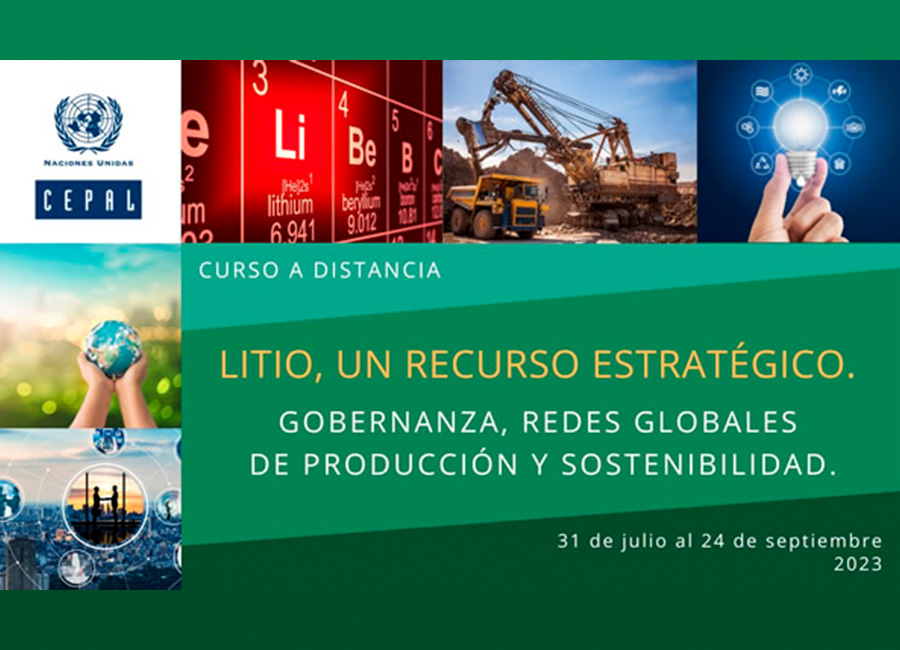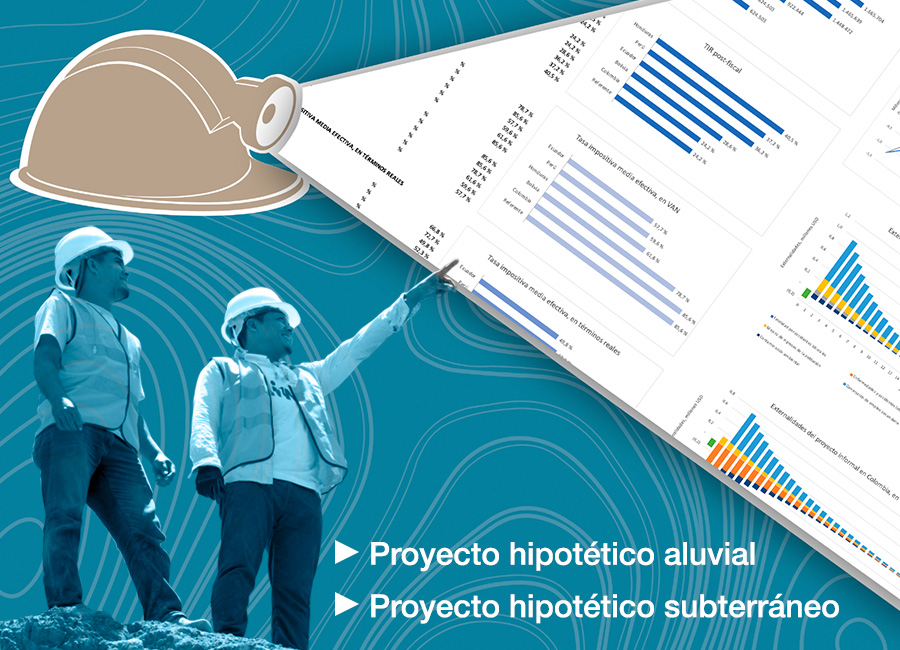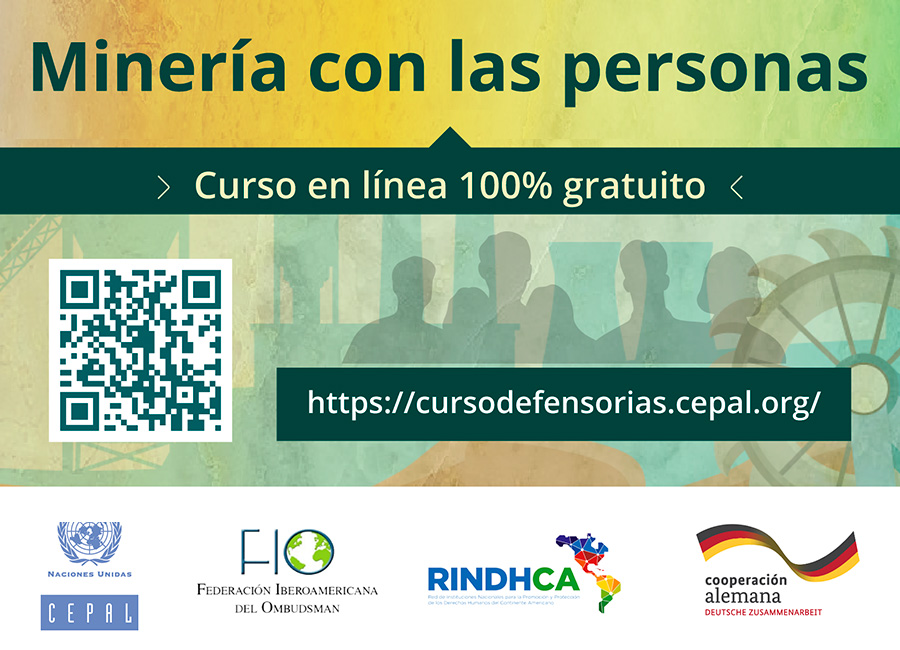Register and participate in our courses and workshops
Course: Lithium, a strategic resource. Governance, global value chains and sustainability
This course has been developed to provide an introduction to the fundamental aspects concerning lithium mining. The course includes six modules and addresses geological, contractual, production and market aspects, value chains, taxation, and socioenvironmental governance. At the end of the course, students are expected to have: i) general knowledge about lithium mining and how this critical mineral can be exploited responsibly; and ii) conceptual tools to understand the specific problems and challenges that can arise from the exploitation and value addition in lithium value chains.
Registration for 2023 is now open:

Course: Lithium, a strategic resource. Governance, global value chains and sustainability
This course has been developed to provide an introduction to the fundamental aspects concerning lithium mining. The course includes six modules and addresses geological, contractual, production and market aspects, value chains, taxation, and socioenvironmental governance. At the end of the course, students are expected to have: i) general knowledge about lithium mining and how this critical mineral can be exploited responsibly; and ii) conceptual tools to understand the specific problems and challenges that can arise from the exploitation and value addition in lithium value chains.
The course was first implemented in mid-2022 and is scheduled to be repeated in the future.
Si usted está interesado, por favor contáctenos.
Mining with people, incorporating the human rights approach in the environmental impact assessment of mining projects
This virtual course provides theoretical and methodological tools on the importance of incorporating a human rights-based approach in environmental impact assessments of mining projects. This virtual course is free and open to the public. It can be completed at your own pace. Upon completion, a certificate will be awarded.
This course has been developed by the ten Ombudsman Offices that are part of the Thematic Group of the Ibero-American Federation of Ombudsmen (FIO) with the support of ECLAC and GIZ, within the framework of the MinSus Program. The course is divided into three modules: (i) context and current situation of mining in Latin America and the Caribbean from a social, environmental and economic point of view, exploring the importance of the sector for the region; ii) the framework linking sustainable development, the environment and human rights, addressing international human rights systems as well as the instruments and initiatives of the business and human rights framework; and iii) the elements of the human rights approach and recommendations for its inclusion in environmental impact assessments of mining projects. The course provides recommendations for companies and governments and explores good practices of the Ombudsman Offices.
You are invited to registering here:
Financial and fiscal model for small-scale mining
MinSus and the Alliance for Responsible Mining (ARM) have developed two financial and fiscal models for small-scale mines – one for an underground mine and on for an alluvial mine. The models were designed following the FAST standard and include the fiscal regimes of Bolivia, Colombia, Ecuador, Honduras and Peru. The models allow the user to integrate other fiscal regimes for comparative purposes and include the estimation of both social and environmental externalities. Furthermore, there are options to determine an optimal price premium for responsibly produced gold.
If you are interested to learn how to use the tool, please contact us.

Financial and fiscal model for small-scale mining
MinSus and the Alliance for Responsible Mining (ARM) have developed two financial and fiscal models for small-scale mines – one for an underground mine and on for an alluvial mine. The models were designed following the FAST standard and include the fiscal regimes of Bolivia, Colombia, Ecuador, Honduras and Peru. The models allow the user to integrate other fiscal regimes for comparative purposes and include the estimation of both social and environmental externalities. Furthermore, there are options to determine an optimal price premium for responsibly produced gold.
If you are interested to learn how to use the tool, please contact us.
 Contact us
Contact us Newsletter
Newsletter Courses
Courses